Soviet cinema has always been a treasure trove for those seeking films that delve into philosophical questions. This collection brings together ten Soviet films that not only entertain but also provoke thought, challenge perceptions, and explore the complexities of human existence. From existential dilemmas to societal critiques, these films offer a window into the philosophical mind of the Soviet era, making them invaluable for anyone interested in both film and philosophy.
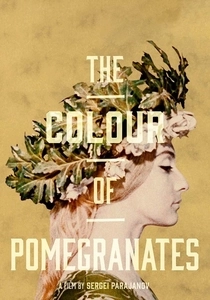
The Color of Pomegranates (1969)
Description: Directed by Sergei Parajanov, this film is a visual and philosophical journey through the life of Armenian poet Sayat-Nova, using symbolic imagery to explore themes of art, love, and the passage of time.
Fact: Parajanov was imprisoned for his work, which was seen as subversive by Soviet authorities, yet the film has since been recognized as a masterpiece of world cinema.
 Watch Now
Watch Now 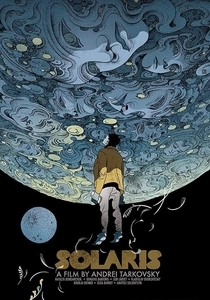
Solaris (1972)
Description: Tarkovsky's adaptation of Stanislaw Lem's novel is a philosophical inquiry into the nature of consciousness, love, and the human mind's interaction with an alien intelligence. It questions the essence of humanity through the lens of space exploration.
Fact: The film was remade in Hollywood in 2002 by Steven Soderbergh, but Tarkovsky's version remains the more celebrated for its philosophical depth.
 Watch Now
Watch Now 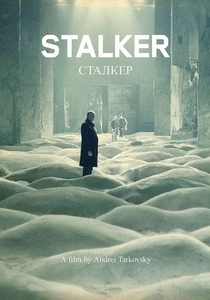
Stalker (1979)
Description: Another masterpiece by Tarkovsky, 'Stalker' explores themes of faith, desire, and the search for meaning in a mysterious, forbidden zone where wishes are said to come true. It's a profound meditation on human longing and the nature of reality.
Fact: The film was shot in Estonia, and the Zone was inspired by the Chernobyl Exclusion Zone, which Tarkovsky visited before the disaster.
 Watch Now
Watch Now 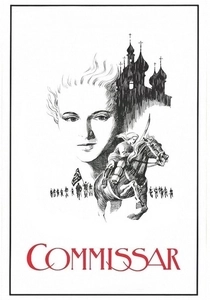
The Commissar (1967)
Description: Aleksandr Askoldov's film, banned for 20 years, is a profound examination of motherhood, duty, and the clash between personal and political life during the Russian Civil War.
Fact: The film was only released in 1988, after Gorbachev's policy of Glasnost allowed for greater artistic freedom.
 Watch Now
Watch Now 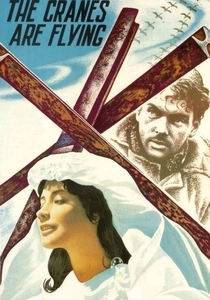
The Cranes Are Flying (1957)
Description: Mikhail Kalatozov's film is a poignant exploration of love, loss, and the impact of war on personal lives. It delves into the philosophical question of how individuals cope with the chaos of war and the resilience of the human spirit.
Fact: The film won the Palme d'Or at the Cannes Film Festival, making it one of the first Soviet films to achieve such international acclaim.
 30 Days Free
30 Days Free 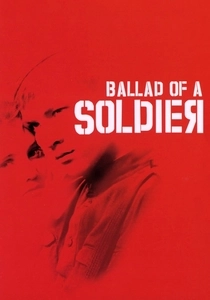
The Ballad of a Soldier (1959)
Description: Grigori Chukhrai's film tells the story of a young soldier's brief leave from the front, exploring themes of sacrifice, duty, and the small moments of humanity amidst the brutality of war.
Fact: The film was nominated for an Academy Award for Best Original Screenplay, highlighting its universal appeal.
 30 Days Free
30 Days Free 
The Ascent (1977)
Description: Directed by Larisa Shepitko, this film set during World War II examines themes of sacrifice, betrayal, and redemption. It's a stark portrayal of human morality under extreme conditions, offering a philosophical take on the nature of heroism.
Fact: Shepitko died in a car accident shortly after the film's release, leaving behind a powerful legacy with this work.
 30 Days Free
30 Days Free 
The Mirror (1975)
Description: This film by Andrei Tarkovsky is a deeply personal exploration of memory, time, and the human condition. It weaves together scenes from the life of a dying poet with historical footage, creating a tapestry of philosophical reflection on existence and identity.
Fact: Tarkovsky's mother, Maria Vishnyakova, plays the role of the poet's mother, adding a layer of authenticity to the film's autobiographical elements.
 30 Days Free
30 Days Free 
The Irony of Fate (1975)
Description: This comedy by Eldar Ryazanov, while humorous, subtly explores themes of destiny, identity, and the absurdity of life's coincidences, making it a philosophical commentary on Soviet life.
Fact: The film has become a New Year's Eve tradition in Russia, with many watching it annually.
 30 Days Free
30 Days Free 
The Pass (1988)
Description: Directed by Vadim Abdrashitov, this film explores themes of guilt, responsibility, and the moral dilemmas faced by individuals in a society undergoing transformation, reflecting on the philosophical implications of personal choices.
Fact: The film was part of the Perestroika era, where Soviet cinema began to openly address social and political issues.
 30 Days Free
30 Days Free 








